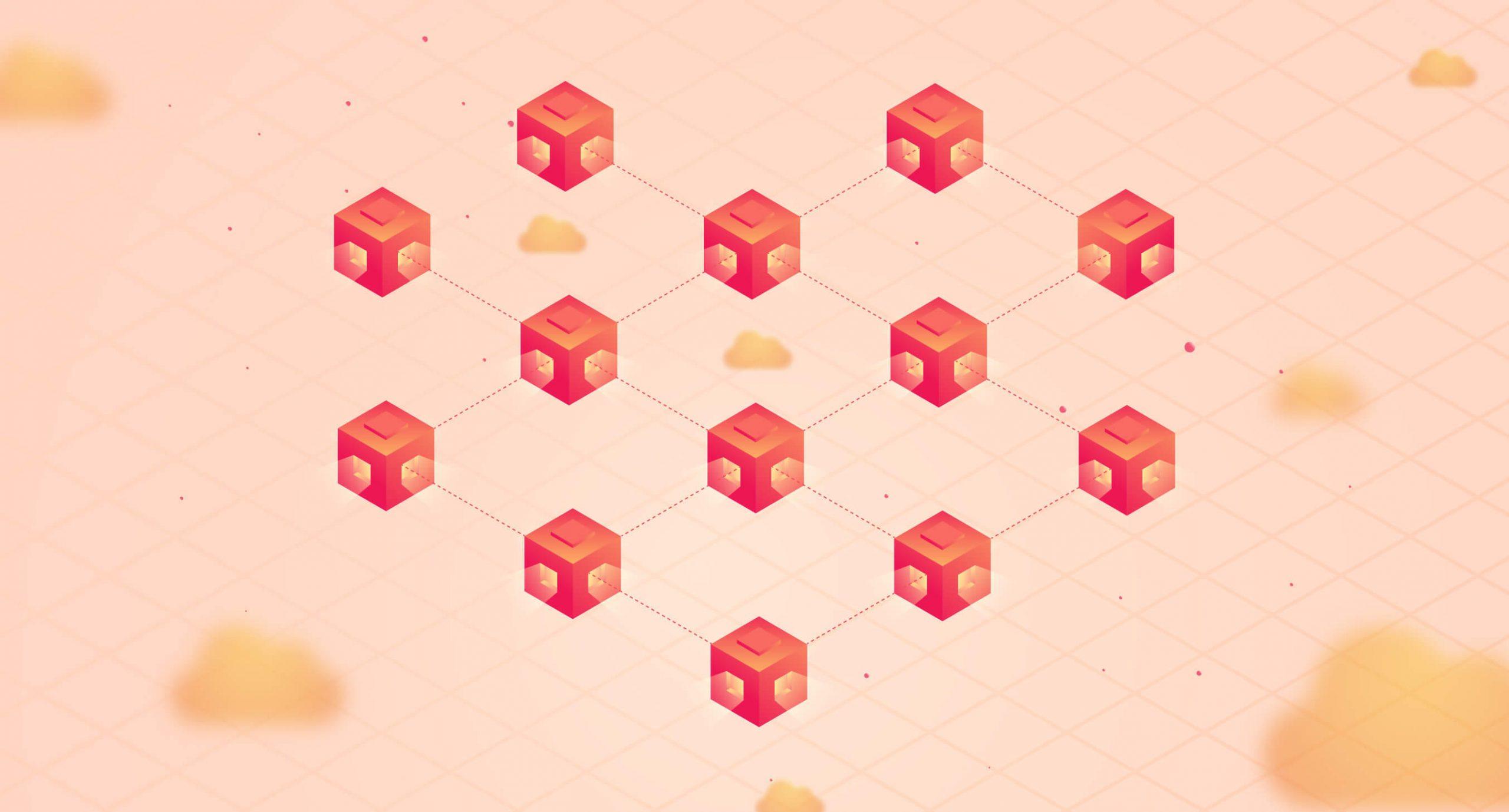Blockchain technology has applications beyond cryptocurrency and Bitcoin. Leveraging its critical tenets of transparency, fairness, and speed, it can empower various applications in different industries. The extended use cases of this technology are one reason for the blockchain market to explode at a CAGR of 65.5% to reach $248.9 billion in 2029 from $20.1 billion in 2024.
The applications of this technology are numerous, from integrating smart contracts into enforcement tasks to bringing traceability into supply chain management or decentralizing health records. Blockchain impacts every industry and enhances its scope to be better than before. Let’s take a closer look at non-crypto use cases of blockchain.
Real-World Applications of the Blockchain Technology
Blockchain technology fits into the internal structure of different operations due to its immutability, decentralization, security, and transparency. These features, among many others, make it adaptable and efficient enough to bring about fundamental changes in different applications.
- Supply Chain Management
Blockchain brings effective transparency and traceability into supply chain and logistics operations. As it brings transparency into the system, tracking products from their origin to the destination streamlines enhances the process’s accountability.
Walmart began using blockchain in 2016 for tracing grocery products' journey from farm to the shelves. Using blockchain technology, retailers can track the product’s origin, and since the records cannot be mutated, authorized personnel can access authentic information.
Similarly, Walmart Canada uses distributed ledger technology to manage over 200 data points with perfect accuracy. The company agrees that with blockchain, only 1% of invoices are disputed compared to 70% of disputes earlier.
Although it can be used for every product, the ones with a higher degree of fraud and counterfeit scope are better off with this blockchain, like luxury goods and pharmaceuticals.
- Healthcare and Life Sciences
Blockchain in healthcare can streamline medical data management, secure medical device tracking, and drug administration. Given the expansiveness and variety of healthcare data stored in different repositories, the blockchain provides interoperability.
In addition to granting interoperability, helping patients and medical institutions access data from a single point without worrying about data manipulation.

Here’s how the blockchain technology is making healthcare better;
- Blockchain enables structured data sharing amidst security through decentralized databases. This helps protect patient data and privacy while allowing complete visibility over medical data.
- Patient consent management is made easier with blockchain as the technology provides effective privacy and permission layers. Through this, patients can control what information doctors can access through access to their profiles.
Medicalchain, a UK-based healthcare technology company, uses blockchain to manage patient health data and administer patient consent management. While patients can share their medical records, they have control over data any other person can access.
The organization helps maintain a single point of truth with the help of blockchain to protect the integrity of health records.
- Insurance
Two crucial impacts of blockchain in insurance are saving time and cutting costs. Moreover, it can be integrated into operations to improve transparency and compliance with regulations.
Blockchain technology integrated into the insurance system can facilitate automation and process tamper-proof audit trails. By doing so, blockchain can help create immutable and trustworthy records of all products and their benefits.
Here’s what else it can do;
- Automate insurance claims through smart contracts and reduce the time spent processing them.
- Bring transparency in insurance payouts ensuring the right people get every penny they can according to the contracts.
AXA launched Fizzy, a smart insurance product with automatic compensation managed with smart contracts and blockchain to ensure a quick process with effective authentication. Instead of passengers calling insurers and asking for delayed flight insurance, Fizzy tracks flights and uses smart contracts to execute insurance payouts.
- Media and Entertainment
Piracy is one of the biggest problems in the media and entertainment industry, and blockchain technology can help solve it by tracking the lifecycle of an asset and managing digital rights (DRM) with features built-in to protect digital content and distribute digital collectibles with authenticity.
Using blockchain technology, artists and creators can digitize metadata of their unique content and assets. This helps manage the intellectual property rights and store them on a time-stamped immutable ledger.
In addition to protecting their content, blockchain can also enable peer-to-peer sales and content distribution while executing intelligent contracts for their royalty. As everything will be connected to the blockchain, it’ll be easier to track distribution and sales, ensuring the artists get every penny they deserve.
Mycelia, an application for music makers, uses blockchain to ensure musicians get fair payment for their work. It tracks its content’s usage across platforms and gets fair payment for the distribution across platforms.
- Government and Public Sector
Blockchain is proving effective for the government sector, protecting data and streamlining processes while helping reduce fraud and abuse in the entire industry.
A blockchain-based government model ensures individuals, businesses, and governments can interact over a distributed ledger through cryptographic principles.
Where blockchain is used in the public sector;
- For data integration in smart cities and managing physical, social, and business infrastructures.
- Process transactions in real-time to settle interbank payments while facilitating an increase in transaction volume and enhancing network resilience.
- Smart contracts enable taxation systems to track tax data with income transactions automatically and to determine tax payouts and deductions.
- Create transparent and tamper-proof voting systems to ensure the security and integrity of elections to combat election fraud.
The State of West Virginia used blockchain technology to record and process election votes of military personnel posted abroad.
- Real Estate
Blockchain technology can potentially optimize property sales transactions, streamline payments, and improve access to funds and investment opportunities.
The utilities of blockchain technology extend to include;
- Real estate assets tokenization;
- Enhance process efficiencies for all underlying real estate operations;
- Optimize process automation costs;
- Improve access asset distribution;
- Help access to globally relevant investment pools through ownership fractionalization.
Through these, the technology can impact access to real estate funds and asset management through tokenization. Assets integrated into the blockchain can be configured to add ownership rights and transaction history and set asset issuance rules.
Propy uses smart contracts to facilitate real-estate transactions while making everything done through the platform more secure and transparent.
- Identity Verification and Security
Blockchain’s decentralized nature is utilized for identity verification, which prevents events like single points of failure native to a centralized authority. It helps build a system where users can own and control their identity. As personal information is stored on a decentralized blockchain, it eliminates the risk of data breach and identity theft.
Blockchain features like immutability ensure no data can be changed, facilitating the creation of self-sovereign identity (SSI).
Microsoft Azure offers a solution in this domain, Azure Active Directory (Azure AD), now called Microsoft Entra ID, which lets users create and manage their digital identities without depending on central authorities.
Conclusion
Even after having several innovative applications, we have limited blockchain technology’s implementation to cryptocurrencies and the decentralized finance (DeFi) sector. However, as you can see above, blockchain technology has several other use cases and applications that will continue to expand.
Things have set in motion for several countries to adopt blockchain in creating digital currencies native to each country. Coupled with IoT integration, blockchain will automate supply chains even further in tracking goods movement.
Several innovative applications of blockchain technology will continue to emerge as we move forward. Always be aware of these new advancements and how they can impact your organization.














Leave a Reply